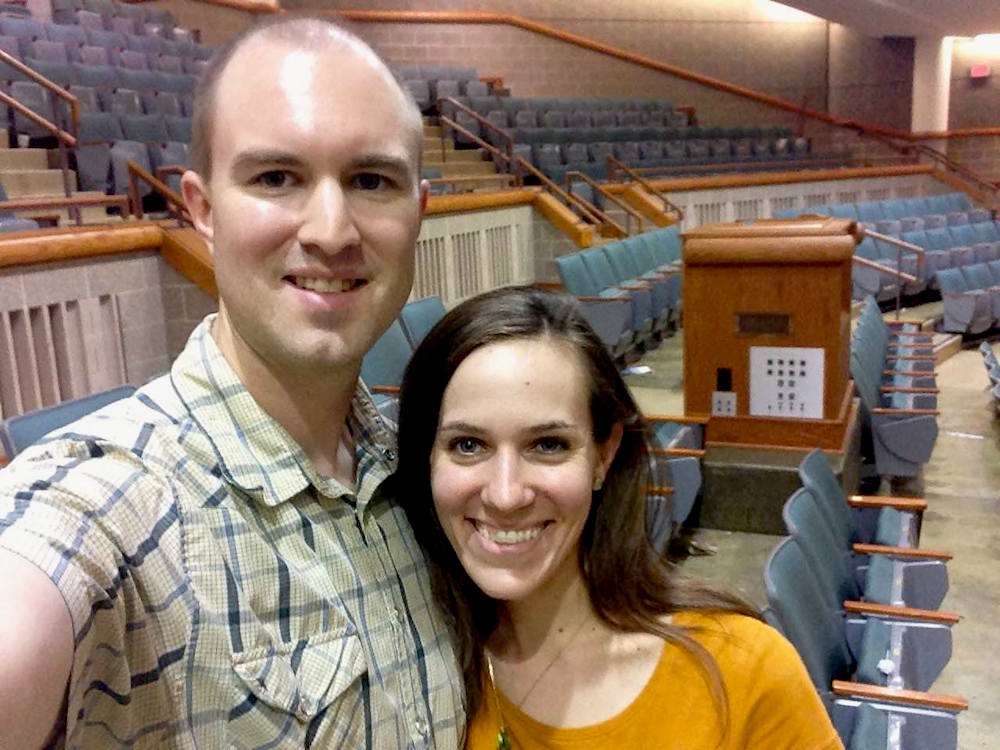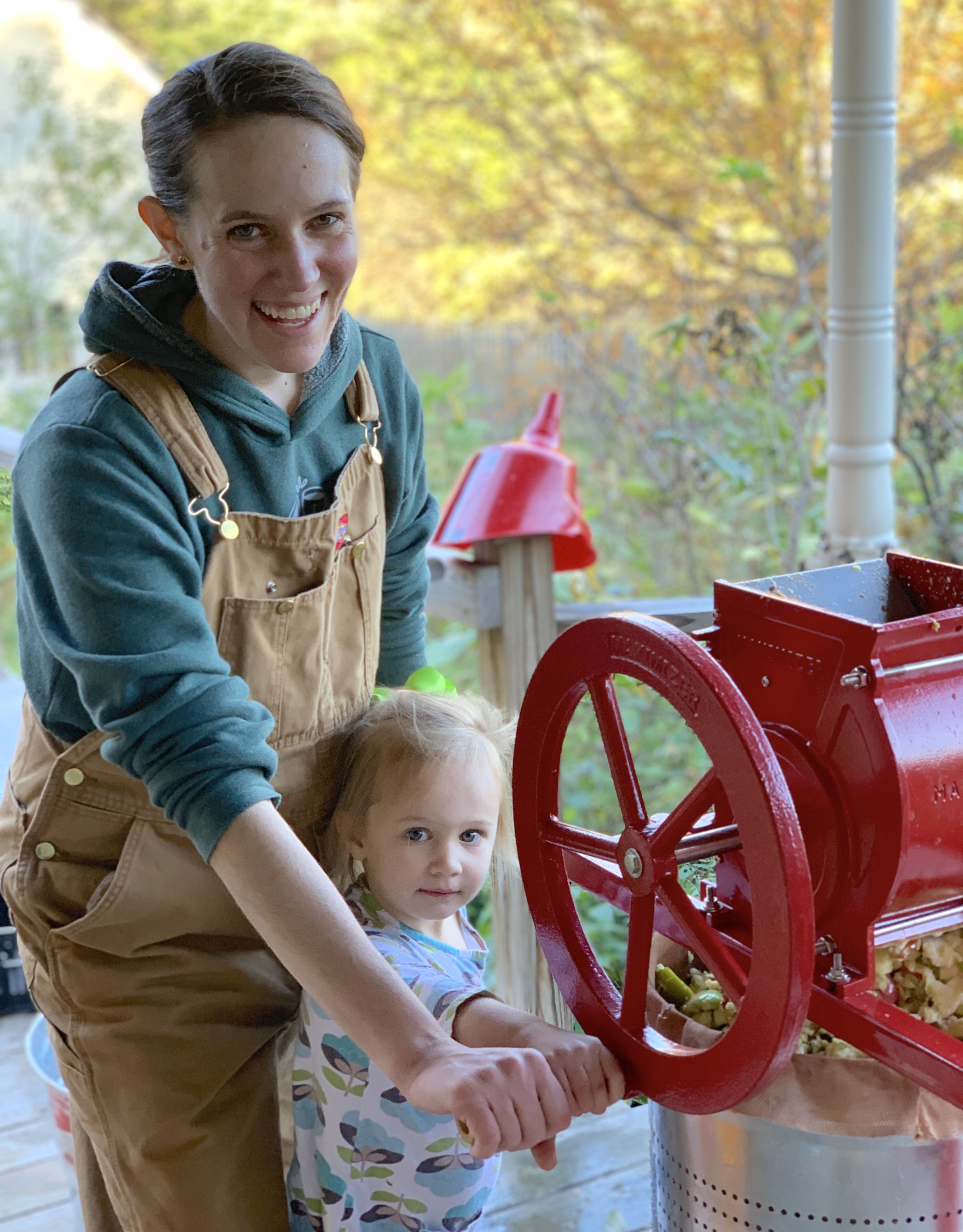The Best High Interest Rate Online Savings Accounts
I like to do everything online. I like to save money. I like to save money into savings accounts. And I really like high-interest savings accounts. So you can guess that my favoritest of all are online high-interest savings accounts. I mean, not more favorite than after-I-put-the-kids-to-bed-at-night-and-open-wine favorite, but a close second. Here’s a boring (but important) explanation of how Frugalwoods makes money.
TLDR: this page is about the best online high-interest savings accounts and why you should use them. Plus…
(A few of the) Dumb Things I Did At Age 22 (not all of them because we would be here all day)
Back in the day, before I was Mrs. Frugalwoods, all I knew about managing money was that debt is bad. The second thing I knew was that high interest rates on debt are really, really bad and high interest rates on savings accounts are really, really good. Trying to be a good money person, I avoided going into debt and I opened an online high-interest savings account.

There weren’t many options back in those days when “internet banking” was nascent and I did wonder if I’d ever see my money again. But I took a chance because online banks offered the highest interest rates I could find. Also, I had very little money so if I never saw it again, I would only be out, oh, $50. That was 14 years ago and today, the world wide web is used for all manner of banking transactions, social interactions, and videos of sneezing panda bears. Where would we be without cyber space, people?!?
Although I was nearly financially illiterate when I was 22 years old, freshly graduated from college, working in New York City for less than minimum wage… I did at least do the right thing in finding a high interest savings account. Since I did a lot of other things wrong when I was 22 years old, allow me to pause for a congratulatory moment here. Pause. Moving on.
While a high-interest savings account isn’t going to make you rich, it will make you richer than you are right now. You want your money to earn you more money. That’s what a high-interest savings account does for you.
Are Savings Accounts Worth It?
If you already have a checking account, why even have a savings account?
- For the interest. Checking accounts typically don’t earn interest, but savings accounts do. Especially high-interest savings accounts. Keeping most of your cash in a savings account, and transferring it to your checking account as needed, ensures you’re maximizing your money’s potential to earn more money.

If you have retirement accounts and/or taxable investments, why bother with a measly old savings account? Because I said so. Also:
- To prevent against calamity and catastrophe. A savings account is your buffer against debt. Retirement accounts and taxable investments are not liquid cash. You cannot use them in emergencies. It takes time to liquidate stocks and there are taxes to pay and major penalties if you withdraw money prematurely from a retirement account. A savings account is where you want to keep enough cash to cover you in the event of an emergency.
You can call it an Emergency Fund, you can call it an F-you Fund (obviously that’s a Frugalwoods-you Fund), you can just call it a savings account. Point is, it’s money set aside to tide you over in the event of an unexpected–but totally predictable–emergency, such as:
- A car breakdown
- A leaky roof
- A lost job
- A lost cat
- A lost husband (just saying)
- Or in my case, while aged 22, a very small U-Haul to cart my stuff from Brooklyn to Boston to move in with my boyfriend (don’t get too excited, it was Mr. Frugalwoods)
A savings account covers expensive situations that could arise, but that aren’t part of your normal monthly expenses. Your normal monthly expenses (your rent/mortgage, groceries, utility bills, etc) should be paid for out of your checking account. Your savings account is more of a specialty account to cover you when something bad happens (or something good–we’ll get to that in a moment). And your longterm savings should be in tax-advantaged retirement accounts and/or taxable investments.
A Healthy Savings Account: How Much Money Should I Have Saved?
Since “enough” is not a good enough answer, the conventional wisdom for an emergency fund savings account is three to six months’ worth of your monthly expenses.
PAUSE.
Yes, this means you need to know how much money you spend every month. Don’t panic–there’s an easy way to find out–you can use an expense tracker. Personal Capital is a free, online expense tracker that I use and recommend (affiliate link). Once you know how much you spend every month, you can calculate how much you should save in your emergency fund. Just multiply your monthly expenses by 3 (or 6) and that’ll = your emergency fund goal. See? I told you the world wide web is good for something.
Another Thing I Did Not Know At Age 22

This third important aspect of being a smart money person–tracking your spending–was not something I knew when I was aged 22 and living with a roommate or two. I went on spending binges (we’re talking food, we’re talking coffee, we’re definitely talking bars… ) followed by terrified spending freezes (we’re talking I ate crackers for dinner) because I had nothing left in my account. As in, zero dollars.
During my young adult haze, one particularly memorable moment was when I had to borrow money from a friend in order to pay my tab at dinner after my debit card was declined. And I had a job. Two jobs, actually, which meant I should’ve had money in my account.
THANK GOD I didn’t have a credit card at that point in my life. Since I didn’t track my spending, I had no clue that I’d spent everything I’d earned and would have zero dollars until my next paycheck. You guys, that was dumb. Dumb, dumb, dumb. P.S. I did pay my friend back and was super embarrassed about it. Although, in retrospect, not embarrassed enough to ya know, start tracking my spending or anything…
How Many Savings Accounts Should I Have?
As many as you want! The more the merrier! I have so many accounts that my accounts have accounts! Ok not really. But I do have several savings accounts, which help me stay organized and remind me what I’m supposed to be using my money for and where it’s supposed to go. Note to self: I don’t know how many times I have to remind you of this, but you do not have a savings account titled “Bags of Cheetos I Buy At The Gas Station Because If I Don’t Put Them On The Grocery List It Means I Didn’t Really Buy/Eat Them.”

An emergency fund is the gloom-and-doom type of savings account, but you can have fun savings account too! You could have a savings account called “Bags Of Cheetos.” This, right here, is the real beauty of online banking: you can name your savings accounts really weird things and not feel judged by the bank teller. “Hello, I’d like to withdraw $3.95 from my ‘Bag Of Cheetos’ account. Yes, that’s Cheetos with a C. Yes, I’m sure I want to do this.”
You might have a Scotland Vacation savings account, an Adopting A Puppy savings account, a Wedding savings account, a My Debit Card Will Never Again Be Declined In A Restaurant account (just, you know, for example… ). Having different accounts for different goals is a way to ensure you’re saving enough every month for all the stuff you want to do.
Named accounts are also a way to motivate yourself NOT to spend money on stuff you don’t need (unless, of course, you actually have a Cheetos account). When you open up your bank account and see your Scotland Vacation fund, you can ask yourself if you want to buy a new pair of shoes or put that $100 towards your vacation to Scotland.
Segregating your money into different savings accounts can help you focus on longterm goals and the delayed gratification of not treating yourself in the moment.
The Best Online High-Interest Savings Accounts

High interest, sometimes called high-yield, savings accounts–like that account I opened 14 years ago–are the best. With these accounts, interest works in YOUR favor (as opposed to the interest rates on debt, which work against you).
Having money in a low-interest savings account is a total waste of resources–your money is just sitting there doing nothing. Don’t let your money be lazy! Make it work for you! And now, enjoy some explanatory math:
Let’s say you have $5,000 in a savings account that earns 0% interest. In a year’s time, your $5,000 will still be… $5,000.
Let’s say you instead put that $5,000 into an American Express Personal Savings account that–as of this writing–earns 1.70% in interest. In one year, your $5,000 will have increased to $5,085.67. That means you earned $85.67 just by having your money in a high-interest account.
And you didn’t have to do anything! I’m a big fan of earning money while doing nothing. I mean, is anybody not a fan of that? Apparently so, because anyone who uses a low (or no) interest savings account is NOT making money while doing nothing. Don’t be that person. Be the person who earns money while you sleep. Rack up the interest and prosper.
Best High-Interest Savings Accounts
Now that I’ve convinced you, I know what your next question is: which savings account will give me the highest interest rate? I wondered this myself, so I’m pleased to present this very handy, somewhat dandy chart to help you search for an account that’ll work best for you:

An important note: make sure to select a bank that’s FDIC insured. According to fdic.gov, “The FDIC (Federal Deposit Insurance Corporation) is an independent agency of the United States government that protects you against the loss of your insured deposits if an FDIC-insured bank or savings association fails. FDIC insurance is backed by the full faith and credit of the United States government.”
This is a good thing. A really good thing. It means that if your bank fails, but was FDIC-insured, you will not lose your money (up to $250K). FDIC insurance: don’t bank without it. The best bank for a savings account is one that’s FDIC insured and offers a high interest rate. Another important note: the savings account links are affiliate links.
In Closing
Thank you for joining us today for a lesson on dumb money things Mrs. Frugalwoods did in her early twenties. And also high-interest savings accounts. Please do not be dumb like I was. Please be anti-dumb and please put your money into a savings account that will make you money, such as one of the accounts in the above handy/dandy chart. The end.
